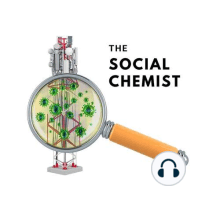18 min listen

The Tuskegee Experiment Of 1932: Psychosocial Mistrust Of Vaccinations Among African Americans
The Tuskegee Experiment Of 1932: Psychosocial Mistrust Of Vaccinations Among African Americans
ratings:
Length:
21 minutes
Released:
Jun 1, 2021
Format:
Podcast episode
Description
In 1932, the United States Public Health Service (USPHS) and the Center for Disease Prevention (CDC) started what was intended to be a 6-month longitudinal study to see the effects of untreated syphilis. The study had recruited a sample size of 600 African American males; what those men would not realize is that the 6-month experiment would turn into a 40-year study of immoral practice and scientific abuse of power.Using the existential threat model and the adaptive-conspiracism hypothesis, learn why many African American vaccine skeptics report adamantly not getting their COVID-19 vaccine shot. An observation that is concerning for medical professionals since African Americans are 5x more likely to die from COVID-19.By the end of this episode, you will ask yourself, did we learn the proper lessons from the Tuskegee Experiment, or have the historical details of the event been manipulated for an underlying agenda. ReferencesTuskegee Study and Health Benefit Program - CDC - NCHHSTPTuskegee Syphilis Study - WikipediaLatest Data on COVID-19 Vaccinations Race/Ethnicity | KFFTuskegee Experiment: The Infamous Syphilis Study - HISTORYTuskegee Study Deters Some Black People From COVID-19 Vaccine : NPRBlack People Are More Hesitant About A Vaccine. A Leading Nurse Wants To Change That : Coronavirus Updates : NPRStop Blaming Tuskegee Study For Inaction On Current Inequities in Health CAre : Shots - Health News : NPRWe Learned the Wrong Lessons from the Tuskegee 'Experiment' - Scientific AmericanAn existential threat model of conspiracy theories. - PsycNET (apa.org)Conspiracy Theories: Evolved Functions and Psychological Mechanisms - Jan-Willem van Prooijen, Mark van Vugt, 2018 (sagepub.com)Previous Social Chemist References https://podcasts.apple.com/us/podcast/conspiracy-theories-and-their-perpetrators/id1530316632?i=1000491598282YouTube References Should Everyone Get the COVID-19 Vaccine? Pro Vax vs Anti Vax - YouTube
Released:
Jun 1, 2021
Format:
Podcast episode
Titles in the series (55)
Operation 5G The Conspiracy Theory by The Social Chemist